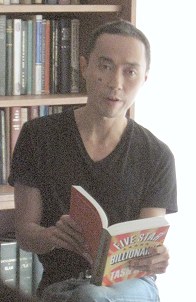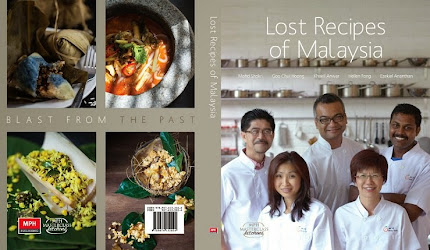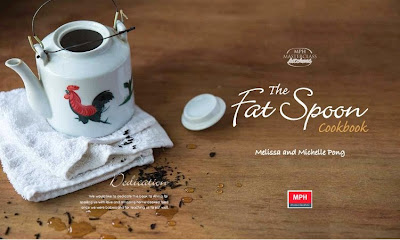Which is perhaps why, during a routine check-up for a bad bout of flu, Patsy Kam and maybe her doctor were caught off-guard when the latter found something else entirely, which marked her a "zebra".
Kam learnt that she has paraganglioma, a rare condition. Estimates say that one out of 300,000 people in the general population are diagnosed with it every year. Though not debilitating in itself, the condition can lead to something worse if left untreated.
Overnight, her world changed, as she prepared for a future fraught with doctors, medical exams and surgeries, while trying to balance her roles as a journalist and mother of three.
This is the story of a woman who discovers her inner strength and resolve as she battles this disease while muddling her way through motherhood. Plenty of drama here as Kam braves painful medical procedures and the side effects of her treatments - on top of the antics of her three sons, who keep proving to be a handful and a half (each) as they grew up.
And hers wasn't a smooth transition to being a mother.
"For starters, I was not one of those women who glowed and beamed as their stomachs grew progressively larger," Kam writes. "Some of them claim they never suffered a day of morning sickness in their lives, and giving birth was as easy as 'pushing out an egg'."
But perhaps it was motherhood that lent her much of the strength she needed to battle her condition.
By sharing her experiences as a patient in this book as well as stories of some people like her (a handy glossary and resource section is provided at the end of the book), Kam hopes more people will learn about the disease and its effects, and spur more research towards finding a cure.
"When I first discovered my medical tragedy, my world came crashing down. There seemed no respite from the surgeries and the drama that unfolded, and there were many, many times when I wanted to call it quits," she says. "But it’s not all bad as I’ve since learnt how to cope with paraganglioma."
"Hopefully, someone, somewhere, will glean something from my experience," she adds, "and be aware of this rare disease and be able to do something about the tumours that come with it before it’s too late."
Patsy Kam is a mother of three and a journalist with Malaysia’s leading English daily The Star. Follow her further adventures beyond this book at her blog Me and My Lumps.
I Am a Zebra!
Making Sense of a Rare DisorderPatsy Kam
MPH Group Publishing
160 pages
Non-fiction
ISBN: 978-967-415-200-0
Buy from MPHOnline.com
Categories:
New Publications

















































